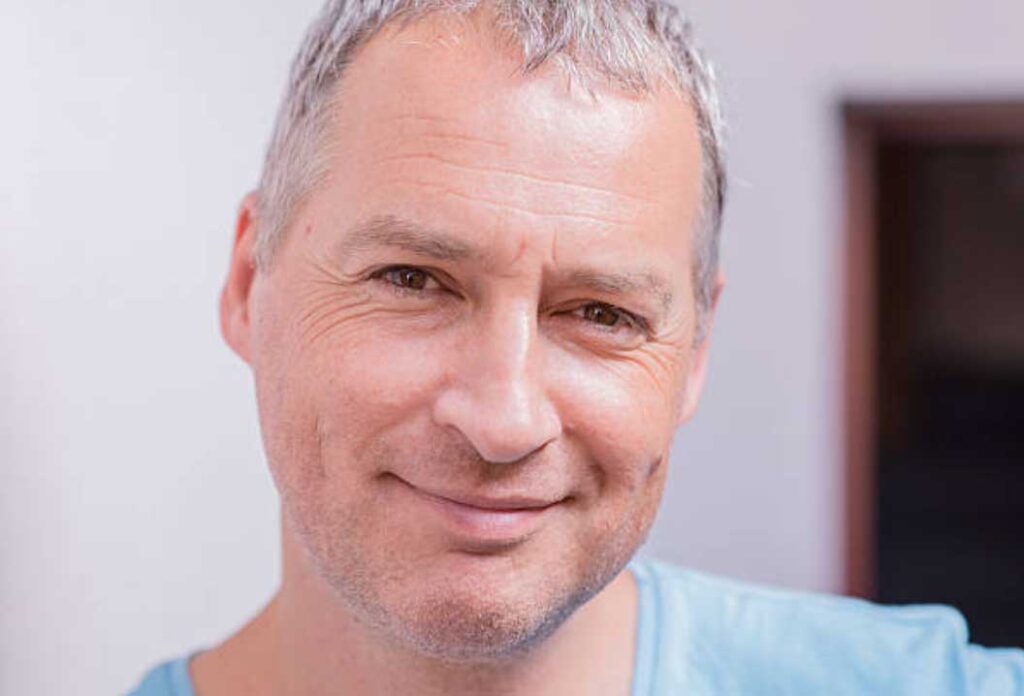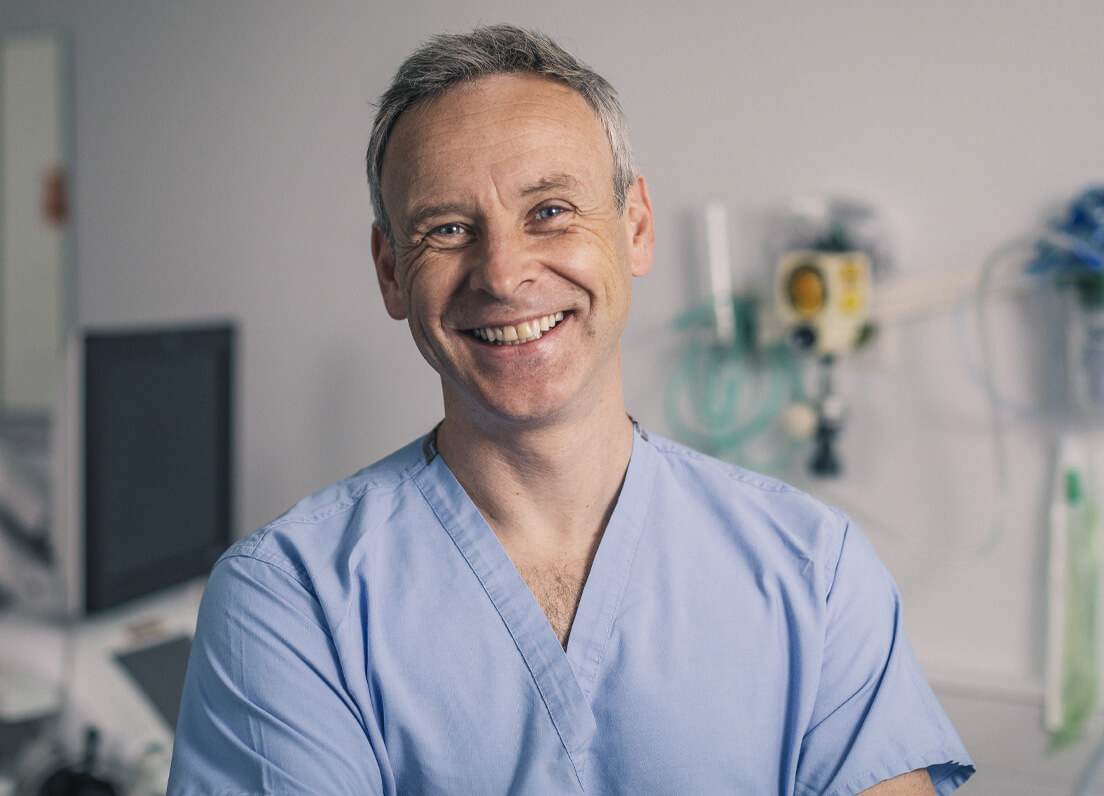Essential Tips for Better Rest During Recovery after Facelift Surgery
Undergoing facelift surgery can be an exciting experience. However, it’s important to remember that the recovery process plays a crucial role in achieving optimal results. One aspect of recovery that often gets overlooked is the importance of sleep. Getting enough restful sleep is vital for the body to heal and recover efficiently after facelift surgery.
In this blog, Bristol-based Consultant Plastic Surgeon Anthony MacQuillan discusses what to expect during facelift recovery and provide essential tips for better rest, ensuring a smooth healing process.
The Importance of Sleep during Facelift Recovery
After facelift surgery, it is normal to experience swelling, bruising, and discomfort in the treated areas. These side effects can make it challenging to find a comfortable position to sleep in. It is essential to follow Anthony’s post-operative instructions and take any prescribed pain medications as directed. Anthony may also recommend using cooling masks (ideally a Hilotherm device) or elevating your head while sleeping to reduce swelling and promote healing.
Sleep is a fundamental aspect of the body’s healing process. When we sleep, our bodies produce growth hormone, which aids in tissue repair and regeneration. Without sufficient sleep, the healing process may be delayed, and the body’s ability to repair itself may be compromised. Moreover, lack of sleep can contribute to increased stress levels, which can hinder the recovery process and increase anxiety levels.
During facelift recovery, your body needs extra rest to heal properly. Giving yourself enough time to sleep and rest can help reduce inflammation, minimise discomfort, and promote overall healing. By prioritising sleep, you are giving your body the necessary tools to recover efficiently and achieve the best possible results from your facelift surgery.
Common Sleep Issues after Facelift Surgery
It is not uncommon for patients to experience sleep disturbances after facelift surgery. Factors such as pain, swelling, and discomfort can make it difficult to fall asleep or stay asleep throughout the night. Additionally, the need to sleep in an elevated position or avoid certain sleeping positions can further disrupt sleep patterns.
Many patients report having difficulty finding a comfortable position to sleep in after facelift surgery. Sleeping on your back with your head elevated is often recommended to reduce swelling and promote healing. However, this position may not be comfortable for everyone, especially for those who are used to sleeping on their side or stomach. It can take time for your body to adjust to the new sleeping position, so it’s important to be patient and persistent.

Tips for Better Rest during Facelift Recovery
While recovering from facelift surgery, it is crucial to prioritise quality sleep. Here are some essential tips to help you achieve better rest during your recovery:
1. Creating a comfortable sleep environment
A comfortable sleep environment can greatly enhance your ability to rest and recover. Ensure that your bedroom is cool, quiet, and free from distractions. Use blackout curtains or an eye mask to block out any unwanted light, and consider using a white noise machine or earplugs to drown out any disruptive sounds. Investing in a supportive pillow (eg: https://www.aviiator.com/products/p/bedwedgepillow) that ensures your head stays above the level of your heart (reducing venous pressure within the head and neck and so reducing swelling and oedema) and a comfortable mattress can also make a significant difference in your sleep quality.
2. Sleeping positions to avoid after facelift surgery
During the initial stages of facelift recovery, it is essential to avoid sleeping on your side or stomach. These positions can put pressure on the healing areas and potentially disrupt the healing process. Instead, try sleeping on your back with your head elevated using additional pillows or a wedge pillow. This position will help reduce swelling and promote proper healing.
3. Establishing a Routine
Your body thrives on routine, especially when it comes to sleep. Try to go to bed at the same time each evening and wake up at the same time each morning, even if you’re taking naps throughout the day. This regularity can significantly improve your sleep quality by reinforcing your body’s internal clock, which in turn, can positively impact the healing process.
4. Limiting Screen Time
In today’s digital age, it’s common to use electronic devices before bed, but the blue light emitted from screens can interfere with your ability to fall asleep. Try to avoid televisions, smartphones, tablets, and computers at least an hour before bed. You might consider reading a book, listening to calming music, or practising relaxation exercises instead to prepare your body and mind for a restful night’s sleep.
5. Mindfulness and Relaxation Techniques
Stress and anxiety can significantly impact your sleep quality. Incorporating mindfulness and relaxation techniques such as deep breathing, progressive muscle relaxation, or gentle yoga stretches can help calm your mind and body, making it easier to fall asleep. Meditation and guided imagery are also effective in creating a state of deep relaxation and have been shown to improve sleep patterns.
6. Daytime Activity
While it’s important not to overexert yourself during recovery, maintaining a level of daytime activity can help you sleep better at night. Simple activities like walking around your home, light stretching (whilst staying upright and being very gentle eg: touching the top of door frames as you pass through them or standing on tip toes 10 times an hour) can promote good circulation and help prevent sleep disruptions due to prolonged inactivity.
7. Recommended sleep aids for better rest
If you are having trouble falling asleep or staying asleep, there are several sleep aids that can help promote better rest during your facelift recovery. Natural remedies such as chamomile tea, lavender essential oil, and magnesium supplements have been found to be beneficial in improving sleep quality. However, it is important to consult with Anthony before incorporating any sleep aids into your routine.
How to Manage Pain and Discomfort for Better Sleep
Managing pain and discomfort is crucial for achieving better sleep during facelift recovery. Anthony will prescribe pain medication to help alleviate any postoperative pain. It is important to take the medication as directed and not to skip any doses. Additionally, applying cold compresses to the surgical areas can help reduce swelling and provide temporary relief.
To further manage pain and discomfort, consider using relaxation techniques such as deep breathing exercises, meditation, or gentle stretching before bedtime. These practices can help calm the mind and relax the body, promoting better sleep.
The Role of Nutrition in Promoting Better Sleep during Facelift Recovery
Good nutrition plays a vital role in promoting better sleep and overall healing during facelift recovery. A well-balanced diet rich in fruits, vegetables, lean proteins, and whole grains provides the necessary nutrients for the body to repair and regenerate. Avoiding caffeine and alcohol close to bedtime can also help improve sleep quality.
In addition to a healthy diet, staying hydrated is essential for optimal recovery. Drinking enough water throughout the day can help flush out toxins, reduce swelling, and keep your body functioning at its best. Be mindful of your fluid intake before bedtime to avoid frequent trips to the bathroom that can disrupt your sleep.
Getting enough restful sleep is crucial for a smooth and successful facelift recovery. By following the tips outlined in this article, including creating a comfortable sleep environment, avoiding certain sleeping positions, incorporating recommended sleep aids, managing pain and discomfort, and maintaining a healthy diet, you can optimise your sleep quality and promote a faster healing process. Prioritising sleep during facelift recovery will not only enhance your physical well-being but also contribute to a more positive and satisfying overall experience.
FAQs about Facelift Surgery Recovery

What is the average recovery time after a facelift surgery?
- The average recovery period for a facelift surgery is generally two to four weeks. Most patients can resume regular activities within two weeks, though some swelling, bruising, and mild discomfort may persist. The timeline can vary based on the individual’s healing response, the extent of the surgery, and the techniques used.
Are there any risks or complications associated with facelift recovery?
- As with any surgery, facelift procedures carry potential risks that occur in the post operative period. Once the operation itself is over the main complications associated with the surgery are those that relate to blood pressure (essentially bleeding due to activity or increased blood pressure) and those related to infection – soft tissue infections of the operated areas. The key to avoiding the former problem is following post operative instructions (for example no bending or lifting together with avoiding exercise for the first 3 weeks) and taking any blood pressure medication you have ben prescribed regularly. Fortunately these problems are rare but if you do have any concerns please do get in contact with Anthony and his team so that you can be seen and treated if there is indeed an issue.
How should I manage pain during facelift recovery?
- Anthony typically prescribes pain medications for the initial days following a facelift. It’s important to take these as directed to manage discomfort. After the first few days, many patients transition to over-the-counter pain relievers. Please do check with Anthony (or one of the team) before taking any medication, as certain drugs can increase bleeding risks.
What are some tips for a smoother facelift recovery?
Ensuring a comfortable recovery involves several steps:
- Follow all post-operative instructions provided
- Keep your head elevated, even while sleeping, to reduce swelling
- Avoid strenuous activities, heavy lifting, and high-impact exercises for the period recommended
- Refrain from alcohol, smoking, and any medications or supplements that can hinder healing
- Attend all scheduled follow-up appointments
When will I be able to see the final results of my facelift?
- While patients see immediate improvements, the final results of a facelift are visible after about 12 months. Swelling and bruising take time to resolve, and the skin and facial tissues will also need time to settle into their new contours (as the swelling resolves the skin can tighten and most people say that it takes about 12 months for people to look their best after facelift surgery. It may take up to 18 months for the scars to mature fully.
Will I have scars after facelift surgery, and can they be hidden?
- Scarring is a natural part of the healing process after surgery. Facelift incisions are strategically placed in the contours around the ear and in the hairline to minimise visible scarring. Over time, with proper care, these scars generally fade significantly and can be easily concealed by hair or makeup.
Can I accelerate my healing process after a facelift?
- While you cannot rush your body’s natural healing process, you can take steps to support a more successful recovery. Eating a nutritious diet, staying hydrated, avoiding stress, and refraining from smoking can positively impact healing. In some cases, Anthony might recommend specific supplements or creams to help with scar healing.
Further Reading about Face Surgery with Consultant Plastic Surgeon Anthony MacQuillan
- Read more about Eyelid Surgery
- Read more about Facelift Surgery
- Read more about Ear Correction Surgery
- Read more about Ful Facelift vs Mini Facelift
Medical References about Recovery after Facelift
- Face-Lift: What to Expect at Home – MyHealth Alberta
- Your facelift recovery explained from Day 1 to Day 30
- Facelift (Rhytidectomy) – Cleveland Clinic



